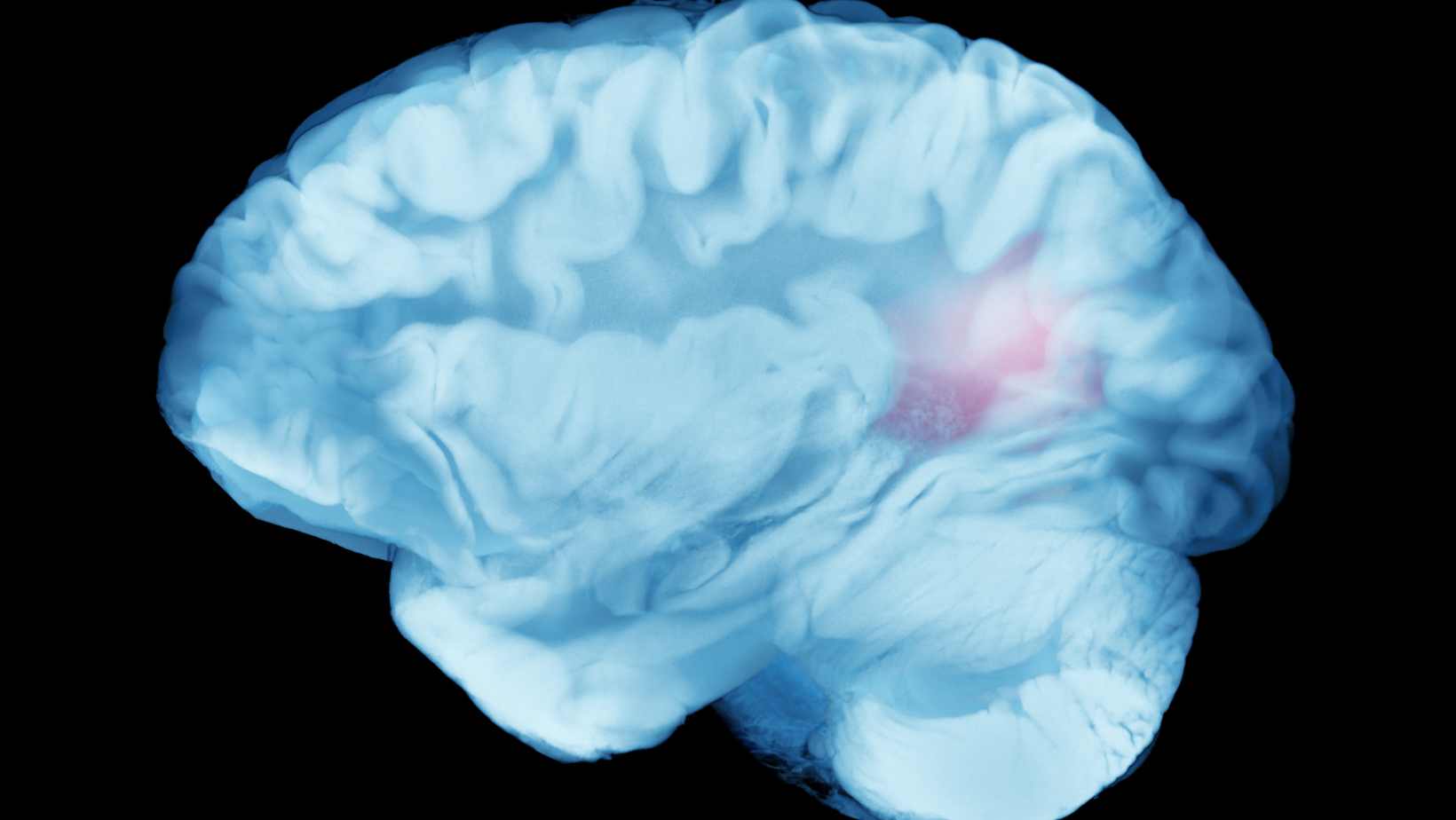Do you often feel dizzy, confused, or like your brain just won’t work right, even though all your scans look normal? You’re not alone. Every day, people walk into clinics with strange physical sensations, convinced it’s a serious nerve issue, only to hear that the cause might actually be anxiety.
So, can anxiety cause neurological symptoms? Absolutely, and science backs it.
In this blog, we’ll explain how this causes real, uncomfortable changes in the nervous system and how to manage these symptoms before they spiral out of control. If you’ve ever wondered can anxiety cause neurological symptoms, keep reading.
Table of Contents
ToggleWhat is Anxiety?
Anxiety is more than just feeling nervous before a big event. It’s a physical and emotional reaction that can hijack your entire body.
- Generalized Anxiety Disorder (GAD): Constant worry, restlessness, and tension.
- Panic Attacks: Sudden episodes of fear, chest pain, and shortness of breath.
- Chronic Stress: Long-term exposure to stress hormones, leading to physical burnout.
Anxiety disorders affect how your body reacts to stress, not just how you think.
- Over 40 million adults in the U.S. suffer from anxiety disorders (ADAA).
- Around 80–90% of physical anxiety symptoms are neurological or stress-related (NIH).
How Can Anxiety Cause Neurological Symptoms?
When anxiety becomes chronic, it affects how your brain works. Can Anxiety Cause Neurological Symptom like excessive worry, fear, and physical reactions such as increased heart rate and nausea. These reactions can cause neurological symptoms like dizziness, headaches, and tingling sensations in severe cases. While anxiety doesn’t damage the nerves, it puts a heavy strain on the brain and often leads to mental health conditions like depression.
Common Neurological Symptoms of Anxiety:
- Tingling or numbness
- Dizziness and Cluster Headaches
- Muscle tension
- Difficulty concentrating or remembering things
Can Anxiety Cause Neurological Symptoms?
Yes, and it’s not in your head, it’s in your brain and nerves. The symptoms are real and physical and can affect daily life if left unmanaged.
Neurological anxiety happens when anxiety either stems from or worsens due to a neurological disorder. People with conditions like Epilepsy Symptoms or Multiple Sclerosis Symptoms often experience heightened anxiety.
Anxiety isn’t just mental. It physically changes how your brain operates.
- Amygdala Overactivity: The fear center becomes overactive, triggering unnecessary danger alerts.
- Hypothalamus: Signals adrenal glands to release stress hormones.
- Fight or Flight Mode: The sympathetic nervous system overactivates, causing heart racing, sweating, and muscle tension.
One line: Anxiety causes the brain to stay stuck in panic mode, which can mimic nerve disorders.
Critical Signs of Neurological Anxiety:
- Uncontrollable fear or worry
- Panic attacks with chest pain and trouble breathing
- Trouble focusing or thinking clearly
- Sleep problems, including nightmares
Different Types of Anxiety Disorders
Anxiety disorders come in many forms, each affecting the brain and body in unique ways:
Post-Traumatic Stress Disorder (PTSD):
PTSD develops after a traumatic event. Common symptoms include flashbacks, nightmares, and severe anxiety. People with PTSD often experience depression and neurological symptoms like shaking or sleep issues.
Obsessive-Compulsive Disorder (OCD):
OCD causes unwanted, repetitive thoughts and behaviors. People with OCD feel the need to perform certain tasks in a specific way to ease their anxiety. This constant stress can cause muscle tension and other physical symptoms.
Panic Disorder:
Panic disorder involves sudden, intense bouts of fear known as panic attacks. These attacks often cause chest pain, dizziness, and shortness of breath, which can mimic neurological symptoms.
Social Anxiety Disorder:
Social anxiety disorder creates intense fear and self-consciousness in social situations. Although it’s not a neurological condition, the stress it causes can lead to physical symptoms like shaking, sweating, or dizziness.
Neurological Symptoms Commonly Caused by Anxiety
So, can anxiety cause neurological symptoms? Yes, and they show up in both the body and the brain.
Physical Neurological Symptoms
When anxiety hits, your nerves respond loudly.
- Dizziness and Vertigo: Sudden spinning or unsteady feelings.
- Paresthesia from Anxiety: Numbness or tingling in hands, face, or legs.
- Muscle Twitches or Spasms: Sudden involuntary jerks.
- Brain Zaps: Electrical-shock-like feelings in the head.
Cognitive and Sensory Neurological Symptoms
Anxiety also scrambles how you think and feel sensory data.
- Brain Fog and Anxiety: Cloudy thinking, forgetfulness.
- Short-Term Memory Issues: Forgetting things you just did.
- Visual Disturbances: Blurry vision, floaters.
- Tinnitus: Ringing in ears or sound sensitivity.
These symptoms are real, not imagined. Anxiety triggers real nervous system reactions.
Why Does Anxiety Mimic Neurological Disorders?
This is the part that confuses most patients—and even doctors sometimes.
Overlap Between Anxiety and Conditions Like:
- Multiple Sclerosis (MS): Numbness, fatigue, vision problems.
- Fibromyalgia: Widespread pain, foggy thinking.
- Epilepsy: Brain zaps and tremors.
- Parkinson’s: Tremors and stiffness.
One line: Symptoms may feel identical, but causes are entirely different.
When to Rule Out Other Conditions
Sometimes, tests are necessary to be sure it’s anxiety and not something else.
- Neurological Testing: MRI, EEG, and blood work help eliminate doubt.
- See a Neurologist: If symptoms are new, intense, or sudden, medical advice is a must.
Diagnosing Anxiety and Neurological Symptoms
If anxiety leads to neurological symptoms, it’s important to get a proper diagnosis. Doctors will conduct tests to rule out other causes, such as medication side effects or other medical conditions.
How Doctors Diagnose Anxiety:
- Physical exams to check for other health issues
- Blood tests to look for any underlying conditions
- A review of symptoms, medications, and medical history
- Questionnaires to assess the severity of anxiety
Managing Anxiety and Its Neurological Effects
To prevent anxiety from affecting your brain and body long-term, it’s important to manage it properly. Recognizing anxiety triggers is the first step. Common triggers include work stress, new responsibilities, childhood trauma, or even side effects of certain medications. Once you identify your triggers, you can take steps to manage them. Incorporating tools like a Brain Booster Supplement may also support cognitive function and overall mental well-being.
Natural Ways to Manage Anxiety:
- Practice mindfulness activities like yoga, meditation, or stretching
- Engage in enjoyable activities that distract from stress (like dancing or painting)
- Take regular breaks from stressful routines to recharge.
If anxiety symptoms become overwhelming, it’s essential to seek medical help. Cognitive-behavioral therapy (CBT), psychotherapy, and medications can all help manage anxiety and its neurological symptoms.
When to Seek Medical Help:
- Persistent headaches or dizziness
- Chest pain or difficulty breathing
- Ongoing sleep problems like nightmares or insomnia
You Don’t Have to Live in Fear: Guidance from Dr. Chugh
Anxiety can trick your brain, mimic disease, and exhaust you. But it doesn’t define you. If you feel like your nerves are on fire or your brain is short-circuiting, you deserve clarity and calm. Can anxiety cause neurological symptoms? Yes, but they can be treated.
Dr. Chandril Chugh, a trusted neurologist, helps patients just like you every day. If you’re unsure whether your symptoms are anxiety or something more serious, book a consultation today. Early help prevents long-term stress on your nerves and your life.
Also Read:

This article is medically reviewed by Dr. Chandril Chugh, Board-Certified Neurologist, providing expert insights and reliable health information.
→ Book a consultation to discover which remedies suit your needs best.
About Author | Instagram | YouTube | Linkedin





